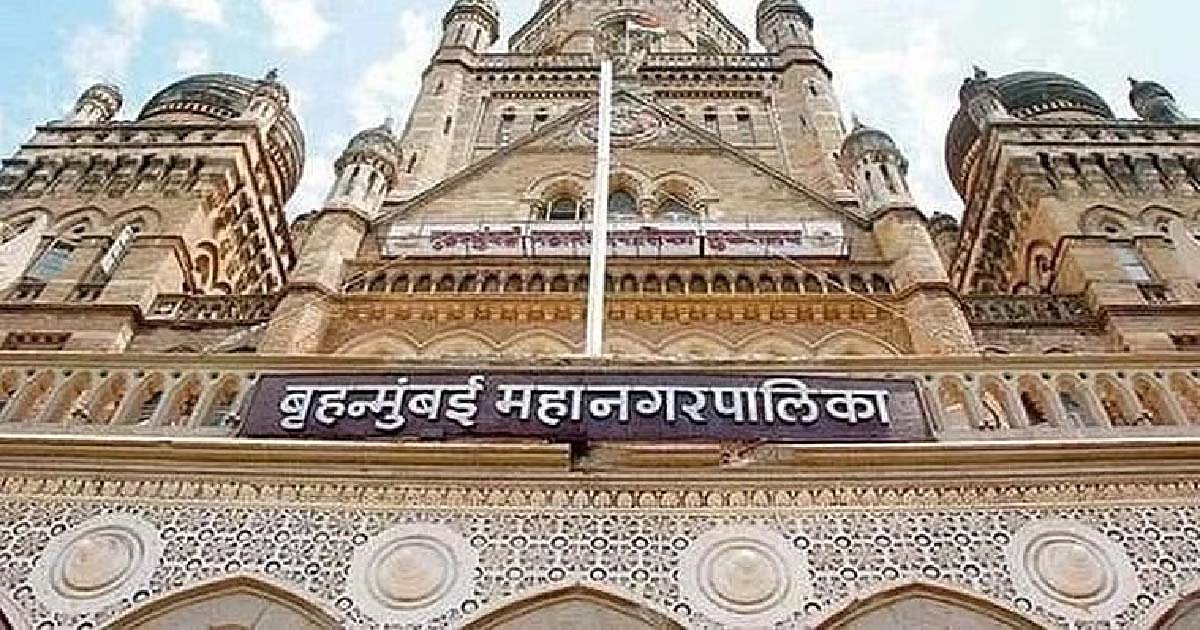Maharashtra
Kurla Bus Tragedy: 20-Year-Old Woman Crushed To Death Returning Home After First Day At Work; Father Blames BMC, Hawkers & Traffic Police

SOURCE: FPJ
Mumbai: The tragic accident that occurred in Mumbai’s Kurla on Monday night around 9:30 PM has left lasting memories for the families of the victims. One of the deceased individuals was a 20-year-old girl identified as Afreen Shah who left her house in the morning for her first day at job. When she stepped out of her home, filled with hope and excitement for her first day at the new job, her father couldn’t have imagined it would be the last time he would see her alive.
Tragically, Afreen became one of the seven victims whose lives were cut short when a speeding BEST air-conditioned electric bus, operating on Route No. A-332, mowed down pedestrians and many vehicles on SG Barve Road in Kurla (West).
Afreen’s father Abdul Salim Shah recounted their last conversation and said that he last spoke to his daughter when she called him complaining that she is struggling to find an auto at Kurla Railway Station while she was returning home after completing her first day at work.
Shah said that he asked her to take the auto from the highway, which falls on a different route where the accident occurred. This was reportedly the last conversation between the girl and her father.
Afreen did not follow her father’s advise to take a different route. Her father believes that if she had taken the alternate route, she might still be alive.
Salim Shah in an interview to a YouTube channel said that he got a call from the Kurla Bhabha Hospital claiming that they have found the mobile phone of his daughter and asked him to come to the hospital immediately.
When he reached the hospital he found the dead body of his daughter. Afreen, his only daughter among three children, had been crushed to death in the tragic incident. Shah painfully disclosed that he had been planning her wedding in the next five to six months.
Shah blamed the Brihanmumbai Municipal Corporation (BMC), illegal hawkers on the side of the roads, traffic police, corporator, MLA and MP for the accident. He said that the situation has not changed in so many years, people are struggling to even walk on the congested roads encroached upon by these illegal hawkers.
He also said that these hawkers bribe the officials and carry on with their businesses in the area. He demanded strict action against the accused and also urged the government to take measures to curb such incidents in the future.
The accident claimed the lives of seven persons and 42 sustained serious injuries. They were rushed to various hospitals after they suffered severe injuries in the bus accident. The police have arrested the bus driver and the court has sent him to police custody till December 21. BEST has setup a committee to probe the bus accident.
Maharashtra
No one’s father has India, MLA Abu Asim Azmi takes a dig at Nitesh Rane

Mumbai: Maharashtra Samajwadi Party leader and MLA Abu Asim Azmi has expressed his anger over Nitesh Rane statement and has given a befitting reply and said that no one’s father has India. He said that Nitesh Rane constantly shows provocations and no action is taken against him. Many cases have been registered but no action is taken. Sharjeel Imam, Umar Khalid are in jail but they are free. They did not show any provocation. The Supreme Court has directed strict action against hate speech but why does the government not take action against such elements who spread hatred.
Maharashtra
New details emerge in investigation into Mumbai Rohit Arya encounter… Rohit had asked for videos from Marathi artists and selected 80 children

Mumbai: was shaken by the hostage drama at the Mumbai RA studio. Rohit Arya had taken young children hostage at the studio in Powai for the money owed. The police successfully rescued them, but Rohit Arya was killed in an encounter. Several Marathi artists will be questioned in this case, and the Human Rights Commission has also taken notice of it. New revelations are coming out every day in the hostage case.
Rohit Arya encounter Investigations are also underway about the ‘artists’ who met Rohit Arya.
Last week, on Thursday, October 30, there was a big commotion in Mumbai in the afternoon. Some young children and senior citizens were taken hostage at the Mumbai RA. After the work done for the education department, a person named Rohit Arya had called some children for an audition for payment of dues and he made several demands while holding some children hostage. After this, the police entered the washroom and rescued a total of 19 people, including 17 children. And during the encounter, Rohit Arya was shot dead.
This hostage drama has shaken not only Mumbai but the entire Maharashtra and new revelations are being made in this case every day. The post-mortem report of Rohit Arya, who was killed in the encounter, has also come out recently. The post-mortem report confirmed that Rohit Arya died due to bullet injuries. The report says that given the nature of the bullet, there was no chance of his survival.
Meanwhile, another revelation has been made in this case. RA Studio in Powai, where this hostage drama Rohit Arya conducted some auditions, was visited by some famous actors of the Marathi world. Many actors like senior actor Girish Oak, actress Urmila Kothare, Manal Kapoor, Swapnil Joshi, Teja Pradhan, Ankash Joshi were present in the studio. Now in this matter, those actors who were in contact with Rohit or were going to participate in the shooting will also be questioned. The Human Rights Commission has taken serious notice of the Rohit Arya encounter case and a committee has been appointed to investigate. In this matter, the artists who went to RA Studio and met Rohit Arya will also be questioned. It has been said that the statements of everyone who was in contact with Rohit Arya will be recorded. According to the information received, Rohit had made a lot of preparations before implementing the plan to take children hostage in the studio. He asked for videos of hundreds of child artists for the short film and selected 80 of them. After that, he organized a four-day workshop for 35, 20 and finally 17 child artists. According to the information received, during these four days, artists Manal Kapoor, Swapnil Joshi, Teja Shri Pradhan, Ankash Joshi had visited the studio and returned, so now all these artists will be questioned.
Rachita Jadhav was also contacted.
It has been told that actress Rachita Jadhav was also invited to the same Raw studio. Rohit pretended that he wanted to do a film and an audition was held for her. Under the same conspiracy, he also contacted actress Rachita Jadhav. He called her, I am doing a film, he asked if you will work in it. When she agreed, he called her to the studio, and he also arranged a meeting. However, at the same time, due to a medical emergency at Ruchita’s house, she told that she could not come to the studio. Hence, Rohit and Ruchita did not meet.
Maharashtra
Maharashtra Polls 2025 To Be Held On December 2, Counting Of Votes On December 3

Mumbai: The State Election Commissioner Dinesh Waghmare on November 4 announced the dates for the long-awaited Maharashtra Polls 2025. While addressing the press conference, the SEC said that the local body polls will be held on December 2 while the couting of votes will be held on December 3. The results for the Nagar Parishads and Nagar Panchayat will be declared on December 10.
According to the SEC, polls dates were announced for all local bodies , except for the 29 municipal corporations. The dates were announced for 246 Nagar Parishads and 42 Nagar Panchayat. The nomination process for the polls will begin on November 10.
The high-stakes polls will be against the ruling Mahayuti consisting of BJP, Shinde’s Sena and Ajit Pawar’s NCP vs the Mahayuti (consisting of UBT Sena, Sharad Pawar’s NCP and Congress). In addition to this, MNS is also set to join hands with the MVA for the polls. For the municipal council and nagar panchayat elections, there are one crore sixty lakh voters and 13,155 polling stations
The last BMC elections were held in 2017 and since then, the elections were not been held. In 2017, the elections were held in a single held on February 21 while results were announced on February 23.
Off all the 227 seats, the United Shiv Sena won 84 seats while BJP won 82 seats. Both the parties were in alliance during that time. The Congress had won 31 seats while the united NCP secured 13 seats. Raj Thackeray’s MNS had won 7 seats.
-

 Crime3 years ago
Crime3 years agoClass 10 student jumps to death in Jaipur
-

 Maharashtra1 year ago
Maharashtra1 year agoMumbai Local Train Update: Central Railway’s New Timetable Comes Into Effect; Check Full List Of Revised Timings & Stations
-

 Maharashtra1 year ago
Maharashtra1 year agoMumbai To Go Toll-Free Tonight! Maharashtra Govt Announces Complete Toll Waiver For Light Motor Vehicles At All 5 Entry Points Of City
-

 Maharashtra1 year ago
Maharashtra1 year agoFalse photo of Imtiaz Jaleel’s rally, exposing the fooling conspiracy
-

 National News1 year ago
National News1 year agoMinistry of Railways rolls out Special Drive 4.0 with focus on digitisation, cleanliness, inclusiveness and grievance redressal
-

 Maharashtra12 months ago
Maharashtra12 months agoMaharashtra Elections 2024: Mumbai Metro & BEST Services Extended Till Midnight On Voting Day
-

 National News1 year ago
National News1 year agoJ&K: 4 Jawans Killed, 28 Injured After Bus Carrying BSF Personnel For Poll Duty Falls Into Gorge In Budgam; Terrifying Visuals Surface
-

 Crime1 year ago
Crime1 year agoBaba Siddique Murder: Mumbai Police Unable To Get Lawrence Bishnoi Custody Due To Home Ministry Order, Says Report












